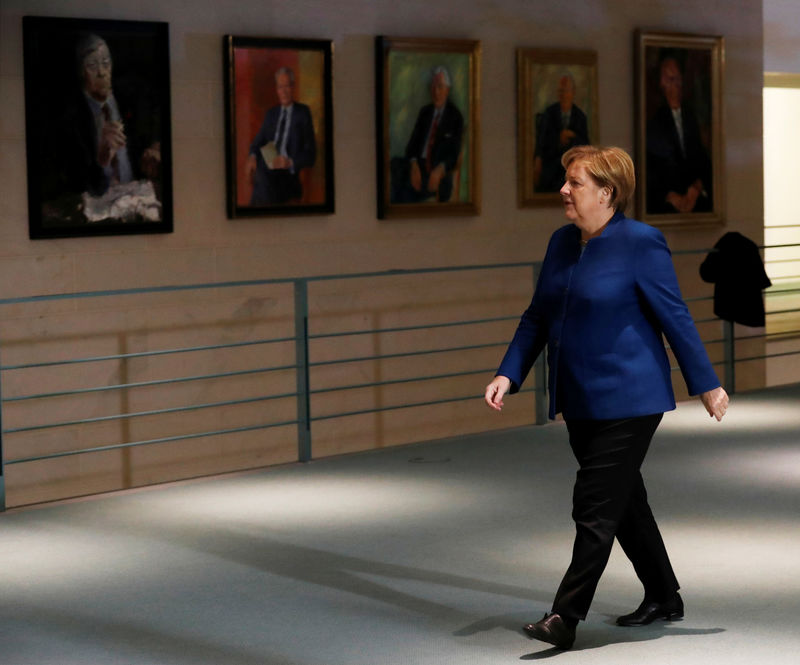Investing.com - Here are the top five things you need to know in financial markets on Friday, November 30:
1. U.S.-China trade negotiations in G20 spotlight
Markets will focus on the start of the G20 summit in Buenos Aires, Argentina on Friday as they watch ongoing trade developments between the world’s two largest economies.
U.S. President Donald Trump and China President Xi Jinping are expected to meet of the sidelines of the summit and the two leaders have a dinner meeting with staff on Saturday evening.
The market was briefly encouraged by Trump’s comments on Thursday that he was close to doing “something” on trade with China, although he added that he wasn’t sure he wanted to.
Market optimism faded after it was confirmed White House trade adviser Peter Navarro will attend the dinner. Navarro is a well-known China hawk, having written such books as Death by China: Confronting the Dragon - A Global Call to Action.
Any sense of progress could buoy the markets on going into Saturday on hopes of a tentative deal. Trump’s twitter feed will be closely watched, as will dispatches from reporters at the summit.
2. U.S. stock futures point to lower open ahead of key trade meeting
U.S. stock futures pointed to a lower open on Friday as investors took risk off the table ahead of any developments - positive or negative - on U.S.-China trade negotiations during the G20 summit. At 6:04 AM ET (11:04 GMT), the blue-chip Dow futures fell 116 points, or 0.46%, S&P 500 futures lost 13 points, or 0.48%, while the Nasdaq 100 futures traded down 34 points, or 0.48%.
Elsewhere, European stocks took a more cautious stance as global trade concerns, including possible U.S. tariffs on its auto exports as soon as next week - continued to pummel the region’s automakers and miners. The pan-European Stoxx 600 was on track for its second straight month of losses, while Germany’s DAX was on track for its longest monthly losing streak since 2008.
Earlier, Asian stocks closed with mixed signs as investors looked ahead to G20 developments.
3. Oil ends bearish month as focus shifts to Saudi Arabia and Russia
Oil prices extended their monthly decline on Friday, erasing a good part of the 2% gains registered a day earlier, as focus shifted to an expected meeting between the Saudi Crown Prince Mohammed bin Salman and Russian President Vladmir Putin on the sidelines of the G20 summit.
Prices rallied on Thursday after a report that Russia was now leaning towards a production cut and traders will watch for any news of an agreement between the two oil-producing giants.
OPEC and non-OPEC allies led by Russia will gather on Dec. 6 and 7 in Vienna to discuss output policy and consensus is looking for a production cut of 1.1 million barrels per day in an attempt to put a floor under the recent sharp drop in oil prices.
U.S. crude was on track for a monthly decline of more than 20% in November and has lost 33% since last October as concerns over the emerging oil glut following production increases by the U.S., Saudi Arabia and Russia pummeled prices
Concerns of oversupply will remain in the spotlight as investors keep an eye on a measure of future output stateside with Baker Hughes’ weekly data out at 1:00 PM (18:00 GMT) Friday.
Although the U.S. rig count dropped by 3 to 885 last week, it remains close to its highest level since March 2015.
4. Dollar inches up after Fed minutes
The dollar traded slightly higher against major rivals on Friday as investors continued to digest speeches given this week from top Federal Reserve officials, along with the minutes of the central bank’s latest policy decision.
Fed meeting minutes released on Thursday showed the central bank is expecting to hike interest rates in December but emphasized the importance of incoming data for upcoming decisions, making future moves less predictable than the quarterly hikes so far this year.
Read more: Fed's New Direction Clear As A Bell: Stephen Innes
Comments from both Fed chief Jerome Powell and vice chair Richard Clarida this week were interpreted to be less aggressive than before as both policy makers suggested interest rates were closed to the so-called “neutral rate” they seek.
In a light economic calendar on Friday, investors will focus on the Chicago purchasing managers’ index for November that will be released at 9:45 AM ET (14:45 GMT).
5. China reports weakest factory growth in over two years
China's manufacturing sector stalled for the first time in over two years in November as new orders slowed, piling pressure on Beijing ahead of crucial trade talks between Presidents Xi Jinping and Donald Trump at the G20.
The manufacturing PMI for the region unexpectedly fell to 50.0 in November. 50 is the dividing line between expansion and contraction in the sector.
The reading suggested that recent stimulus measures by Beijing has yet to be felt, adding to views that business conditions in China will likely get worse before they get better.
